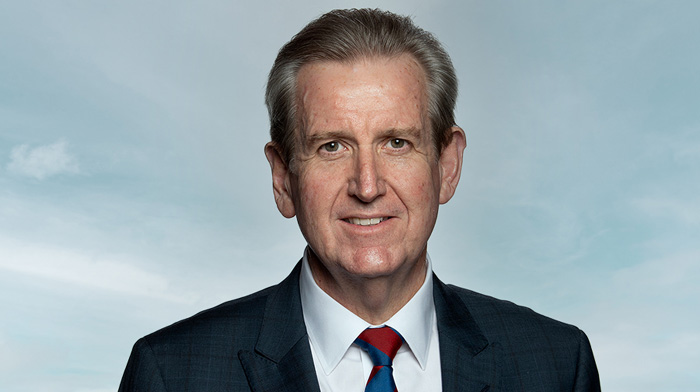Australia sees India as ‘reliable, trusted partner’ for critical minerals: Envoy
Australia’s abundant critical minerals and India’s ambitious energy transition plans make them ideal partners, with New Delhi seen as a “reliable and trusted partner” in this crucial field, Australian envoy Barry O’Farrell said on Monday.
Cooperation in critical minerals, the key to India’s plans to develop clean technologies and electric vehicles, is set to be high on the agenda during Australian Prime Minister Anthony Albanese’s four-day visit to India from March 8. O’Farrell told reporters that India’s Khanij Bidesh India Ltd (KABIL) is set to make a “significant investment” in Australia’s critical minerals.
Albanese’s interactions with the Indian leadership will focus on deepening economic, defence and people-to-people ties. Both sides also have a shared ambition of ensuring a peaceful, prosperous and sovereign Indo-Pacific region, O’Farrell said.
Referring to Australia’s critical mineral reserves, he said: “There is no doubt we are seen by India as a reliable and trusted partner, which is exactly the same way as we see India.” He pointed to natural complementarities between the two sides – Australia wants to be a renewable energy superpower by leveraging its rare earth minerals, while India is one of the world’s fastest-growing energy consumers.
With Australian authorities recently blocking China-linked Yuxiao Fund’s proposal to increase its stake in a strategic rare earths producer, O’Farrell said his country’s decisions on such issues are closely linked to national interests. In this context, he pointed to Australia’s ban on Chinese-owned Huawei from the country’s 5G network in 2018.
“Pre-Covid, we made a decision about our 5G network that was in our national interest…because we will always make decisions that we think benefit us. KABIL is about to make a significant investment in that sector in Australia, which is welcomed both by the Australian government but also by the Indian government,” O’Farrell said.
Asked about the possible fallout of the downturn in the fortunes of Adani Group on investments in Australia, O’Farrell said the Indian conglomerate’s interests are fully functional. The impact of a report by US-based short seller Hindenburg Research on the Adani Group in India is “a matter for Indian regulators”, he said.
“There’s been no reports that I’ve seen in Australia that his businesses have in any way ceased operations…He is probably the largest investor from India in Australia,” he added.
O’Farrell also addressed the reported vandalism of places of worship of the Indian-origin community in Australia and said, “Most Australians have been appalled to see temples [and] places of religious worship vandalised. It is not the Australian way. Police have been very active and continue to be active in seeking to discover and deal with those responsible.”
Many incidents were linked to a so-called “Khalistan referendum” conducted by the Sikhs For Justice (SFJ), which is proscribed in India.
O’Farrell described Australia’s respect for India’s sovereignty as “unwavering” and said the government has made clear that the “unofficial Khalistan poll has no legal standing either in Australia or in India”. Australia’s right to freedom of speech “does not cover those engaging in hate speech, vandalism or violence”, he added.
In the wake of a recent meeting of Quad foreign ministers denouncing any threat of use of nuclear weapons in the context of the Ukraine crisis, O’Farrell said the grouping that brings together India, Australia, Japan and the US is “not about to turn into an Indo-Pacific NATO”.
“The Australian position on that is very clear but it’s also clear that if you’re four countries committed to a shared positive vision for the Indo-Pacific, inevitably there are likely to be areas that are considered to touch on the ability to deliver that prosperity, security and sovereignty,” he said.
These areas include terrorism, economic issues, and the “ability of countries to make decisions according to their owns and not the needs of those who are lending money”, he said, in an apparent reference to China.

